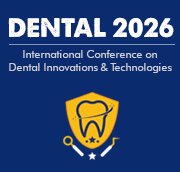Oral Cancer Research
A cancerous growth in the mouth, on the tongue, lips, or gums is known as oral cancer. The most prevalent type of mouth cancer is squamous cell carcinoma. Oral health care specialists detect many oral cancers through normal dental check-ups. It is crucial to pay attention to changes in the oral cavity for early detection, especially for persons who smoke cigarettes and consume alcohol on a daily basis. When oral and oropharyngeal cancer cells are in their early stages, they rarely cause symptoms. Many university hospitals, medical centres, and other organisations across the world are conducting research on oral and oropharyngeal cancers. Every year, researchers learn more about what causes these diseases, how to prevent them, and how to treat them more effectively. A lot of study is being done to learn more about the DNA mutations that cause cancer in the cells of the oral cavity and oropharynx.
- Screening and early detection
- Treatment and diagnosis
- DNA changes and mutations associated
- Oropharyngeal cancer

David Geoffrey Gillam
Queen Mary University of London, United Kingdom
Zvi Loewy
New York Medical College, United States
Khamis A Hassan
Global Dental Research Centre, Canada
Laurindo Moacir Sassi
Erasto Gaertner Hospital Cancer Center and Mackenzie Evangelical University Hospital, Brazil
Arnaldo Castellucci
Dr. Castellucci MD, DDS, Italy
Yasser Khaled
Marquette University, United States



Title : Efficacy of a biomin F toothpaste compared to conventional toothpastes in remineralisation and dentine hypersensitivity: An overview
David Geoffrey Gillam, Queen Mary University of London, United Kingdom
Title : Knowledge and attitudes of dental professionals in the evaluation of Molar Incisor Hypomineralisation (MIH): Awareness, diagnosis and treatment approaches: An overview
David Geoffrey Gillam, Queen Mary University of London, United Kingdom
Title : The coordinated triad of spatial temporal and biomechanical strategies managing the where when and how of shrinkage stress in bulk fill resin composite restorations
Khamis A Hassan, Global Dental Research Centre, Canada
Title : Dental treatment of 1500 young children under general anesthesia
Jaap Boehmer, Rijnstate Hospital, Netherlands
Title : Enhancing root canal success strategic use of orifice opener one step synthesis gels orifice barriers
Emmanuel Samson, Consultant Total Dental Care, India
Title : Importance of clinical pharmacokinetics of medications in the postoperative period of patients undergoing dental surgical procedures
Vitoldo Antonio Kozlowski Junior, Ponta Grossa State University, Brazil